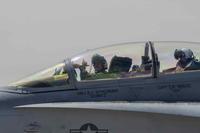
Early in February, the Intelligence Community released its "Annual Threat Assessment of the Director of National Intelligence" for the Senate Select Committee on Intelligence. In it, the IC stated that our nation's information infrastructure -- that includes the internet, telecommunications networks, computer systems, and embedded processors and controllers in critical industries -- are increasingly being targeted for exploitation and potentially for disruption or destruction, by a growing array of state and non-state adversaries.
That should be no surprise to anyone who has read this blog. The report also stated that "Over the past year, cyber exploitation activity has grown more sophisticated, more targeted, and more serious and that the Intelligence Community expects these trends to continue in the coming year." In addition they discussed the cyber threat assessment they conducted and that Russia and China, have the technical capabilities to target and disrupt elements of the US information infrastructure and for intelligence collection (spying).
They also acknowledged that al-Qaida, HAMAS, and Hezbollah have all expressed their desires to use cyber means to target the United States. If that is not a bleak enough picture they went on to describe criminal elements that continue to show growing sophistication in technical capability and targeting, and today operate a pervasive, mature on-line service economy in illicit cyber attack and exploitation capabilities and services available to anyone willing to pay.
In addition they asserted that "we must take proactive measures to detect and prevent intrusions from whatever source, as they happen, and before they can do significant damage."
High tech is a critical driver of the U.S. economy. That raises the question: why the stimulus package had so little money directed at cyber defense research and development efforts as well as hardening of our critical information infrastructure? That would have given twice the bang for the buck!








